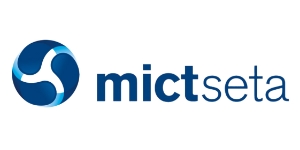In a world filled with countless uncertainties, one thing is for sure: fire poses a significant threat to life and property. Firefighting is a noble and essential profession that requires individuals to be well-trained, courageous, and prepared to tackle some of the most dangerous situations imaginable. Whether you’re considering a career as a firefighter or simply want to enhance your safety knowledge, obtaining firefighting certifications is a crucial step toward mastering the art of firefighting.
To excel in this demanding profession, individuals must undergo rigorous training and attain the necessary certifications. These certifications not only prepare individuals for the challenges of firefighting but also demonstrate their competence and commitment to the profession.
Firefighter I and II Certifications: These are the foundational certifications that all aspiring firefighters must earn. Firefighter I provides the essential knowledge and skills needed to safely and effectively combat fires, while Firefighter II builds on this foundation with more advanced firefighting techniques and strategies.
Emergency Medical Technician (EMT) Certification: Many firefighting departments require firefighters to be trained as EMTs. This certification equips them to respond to medical emergencies, provide critical care, and stabilize patients until they can be transported to a hospital.
Hazardous Materials (Hazmat) Certification: Firefighters often encounter hazardous materials at incident scenes. Hazmat certification ensures that they can identify, handle, and mitigate the risks associated with these substances.
Wildland Firefighter Certification: In regions prone to wildfires, such as California, specialized training and certification are necessary to battle these unpredictable and devastating blazes.
Fire Officer Certifications: As firefighters gain experience and move up the ranks, they can pursue certifications like Fire Officer I, II, or III. These certifications prepare individuals for leadership roles within the department.
Fire Instructor Certification: For those who have a passion for teaching, becoming a certified fire instructor allows them to pass on their knowledge and skills to the next generation of firefighters.
Why Firefighting Certifications Matter
Firefighting is a high-risk profession, and proper training is essential to keep both firefighters and the public safe. Certifications ensure that firefighters are knowledgeable about safety protocols, equipment operation, and hazard identification.
Certifications not only validate the skills and knowledge of firefighters but also provide opportunities for ongoing professional development. Firefighters can continue to advance their careers by pursuing higher-level certifications and staying up-to-date with the latest industry standards.
Certifications are a testament to a firefighter’s commitment to their profession. They instill trust in the community and provide assurance that firefighters are prepared to handle any situation.
With the right certifications, firefighters can open doors to various career paths within the firefighting profession. Whether it’s specializing in hazmat response, becoming a fire investigator, or climbing the ranks to become a fire chief, certifications pave the way.
Choosing the Right Training Provider
Selecting a reputable training provider is as crucial as obtaining certifications. Look for institutions like Peuneo that offer comprehensive firefighting training programs taught by experienced instructors. The training should combine classroom learning with hands-on practical exercises to ensure a well-rounded education.
In conclusion, firefighting certifications are the foundation upon which a successful firefighting career is built. They equip individuals with the skills, knowledge, and credibility necessary to face the unpredictable and dangerous world of firefighting. Whether you’re considering a career in firefighting or seeking to enhance your existing skills, investing in certifications is a step toward mastering the art of firefighting and making a meaningful impact in your community.






